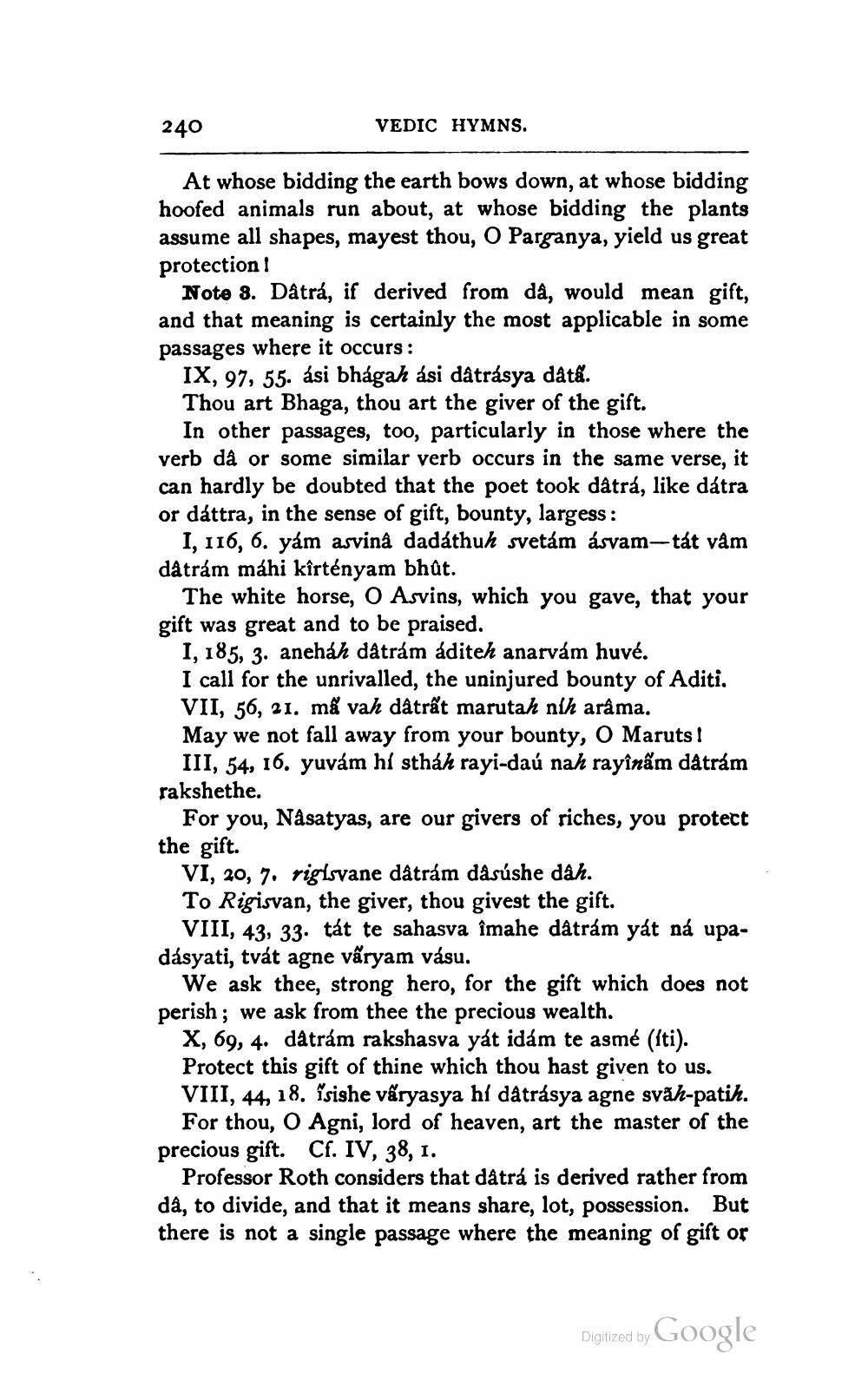________________
240
VEDIC HYMNS.
At whose bidding the earth bows down, at whose bidding hoofed animals run about, at whose bidding the plants assume all shapes, mayest thou, O Parganya, yield us great protection!
Note 8. Dátrá, if derived from da, would mean gift, and that meaning is certainly the most applicable in some passages where it occurs :
IX, 97, 55. ási bhagah ási dátrásya data. Thou art Bhaga, thou art the giver of the gift.
In other passages, too, particularly in those where the verb dà or some similar verb occurs in the same verse, it can hardly be doubted that the poet took dátrá, like dátra or dáttra, in the sense of gift, bounty, largess:
I, 116, 6. yám asvina dadathuh svetám ásvam-tát vam dátrám máhi kîrtényam bhût.
The white horse, O Asvins, which you gave, that your gift was great and to be praised.
I, 185, 3. aneháh dátrám aditeh anarvám huvé. I call for the unrivalled, the uninjured bounty of Aditi. VII, 56, 21. må vah dâtrất marutah nih arâma. May we not fall away from your bounty, O Maruts!
III, 54, 16. yuvám hi stháh rayi-daú nah rayînám dátrám rakshethe.
For you, Nasatyas, are our givers of riches, you protect the gift.
VI, 20, 7. rigisvane dåtrám dásúshe dåh. To Rigisvan, the giver, thou givest the gift.
VIII, 43, 33. tát te sahasva îmahe dâtrám yát ná upadasyati, tvát agne vấryam vásu.
We ask thee, strong hero, for the gift which does not perish; we ask from thee the precious wealth.
X, 69, 4. dátrám rakshasva yát idám te asmé (íti). Protect this gift of thine which thou hast given to us. VIII, 44, 18. fsishe vãryasya hi dâtrásya agne syah-patih.
For thou, O Agni, lord of heaven, art the master of the precious gift. Cf. IV, 38, 1.
Professor Roth considers that dátrá is derived rather from da, to divide, and that it means share, lot, possession. But there is not a single passage where the meaning of gift or
Digitized by
Digized by Google




